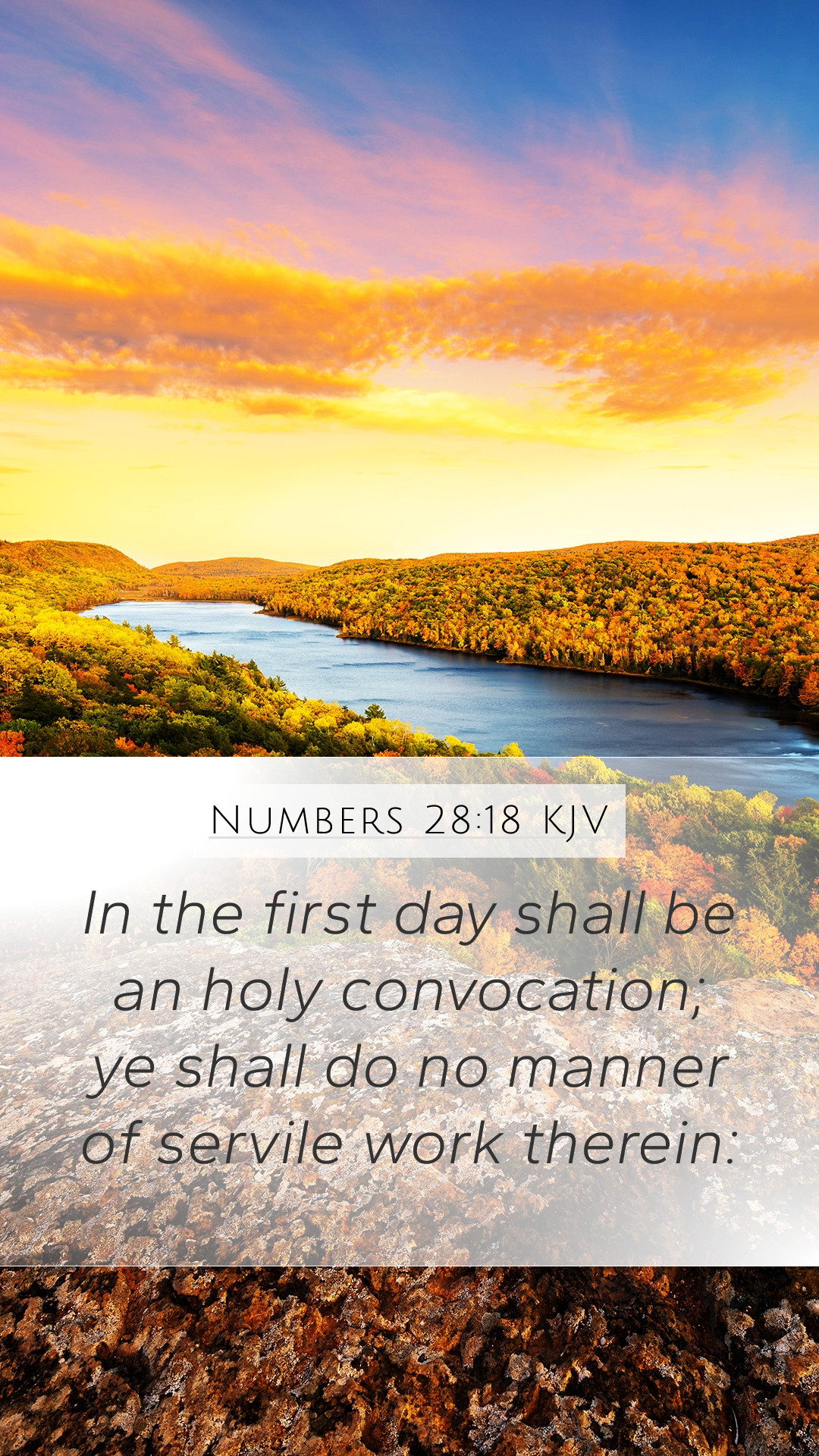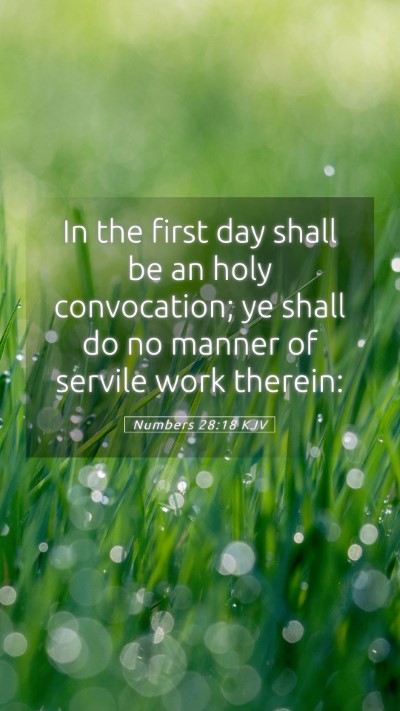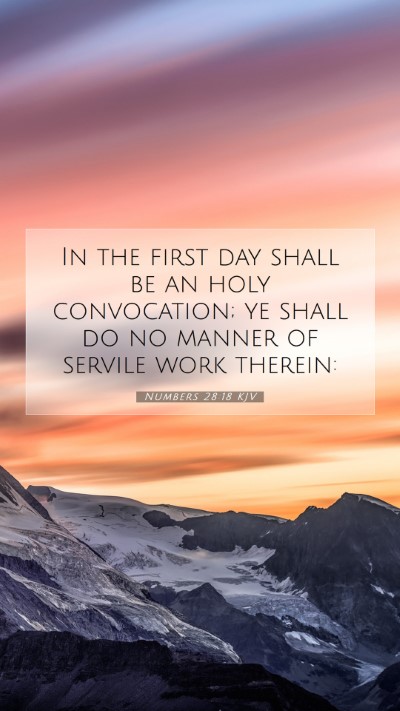Understanding Numbers 28:18 - Bible Verse Commentary
Numbers 28:18 reads: "On the first day of the Feast of Unleavened Bread, hold a sacred assembly, and do no regular work."
This verse is part of the detailed instructions given to the Israelites regarding the observance of feasts and sacred assemblies. Understanding this verse requires an exploration into its context, purpose, and the implications it carries for both ancient Israel and modern readers.
Contextual Background
The Book of Numbers, situated in the Pentateuch, contains a wealth of regulations set forth for the Israelites as they journeyed through the wilderness. The chapters discussing feast days offer insights into the rhythm of life that God desired for His people, intertwined with worship and remembrance of divine interventions in their history. The Feast of Unleavened Bread commemorates the swift departure of the Israelites from Egypt, symbolizing freedom and God's deliverance.
Bible Verse Meaning
According to Matthew Henry's commentary, the strictness of the command on the first day emphasizes the importance of dedicating time to worship God. Instead of engaging in everyday tasks, the day is set apart for spiritual reflection and gathering in community. This aspect parallels the broader biblical theme of resting from labor to honor the Lord.
Albert Barnes adds that this "sacred assembly" reflects not only obedience but also an opportunity for the Israelites to unite in worship, reinforcing their identity as a people chosen by God. The cessation of regular work signifies a break from worldly concerns to dedicate oneself fully to spiritual matters.
Adam Clarke elaborates on the cultural significance of the feast. He mentions that such assemblies were integral to Israelite society, designed to foster community bonds while also serving as a means of remembering the covenant with God.
Key Insights
- Significance of Worship: The verse underscores the centrality of worship in the life of believers, calling them to gather and reflect on God's mighty works.
- Community Focus: It highlights the importance of community in worship, as the assembly was meant for all of Israel, binding them together in a common cause.
- Setting Aside Time for God: The instruction to refrain from regular work denotes the need to prioritize spiritual activities over mundane tasks.
Biblical Exegesis and Practical Applications
Understanding Numbers 28:18 involves recognizing how it can be applied in contemporary settings. The principle of setting aside time for God is just as relevant today. In a fast-paced world, the command to pause and reflect serves as a reminder of the importance of balance between work and worship.
Bible study groups can use this verse as a discussion point on the importance of collectively remembering God's acts within their communities. Online Bible studies may also benefit from exploring the historical context of such feasts, highlighting their significance both then and now.
Related Scripture References
- Exodus 12:15: Discusses the importance of unleavened bread during the Passover.
- Leviticus 23:6: Further elaborates on the Feast of Unleavened Bread.
- Deuteronomy 16:3: Connects the feast with the remembrance of the Exodus from Egypt.
Conclusion
In summary, Numbers 28:18 encourages believers to dedicate time to worship, fostering a sense of community and remembrance of God's faithfulness. By examining the historical and theological implications of this verse, individuals can gain deeper insights into the meaning of Bible verses, enhancing their understanding of Scripture and its application to daily life.
As you continue your Bible study, consider incorporating these themes into your discussions. Reflect on how you can apply the principles of sacred assembly and prioritizing worship in your own life. For further exploration, engage with Bible study resources that delve into the practices of ancient Israel and their relevance today.


